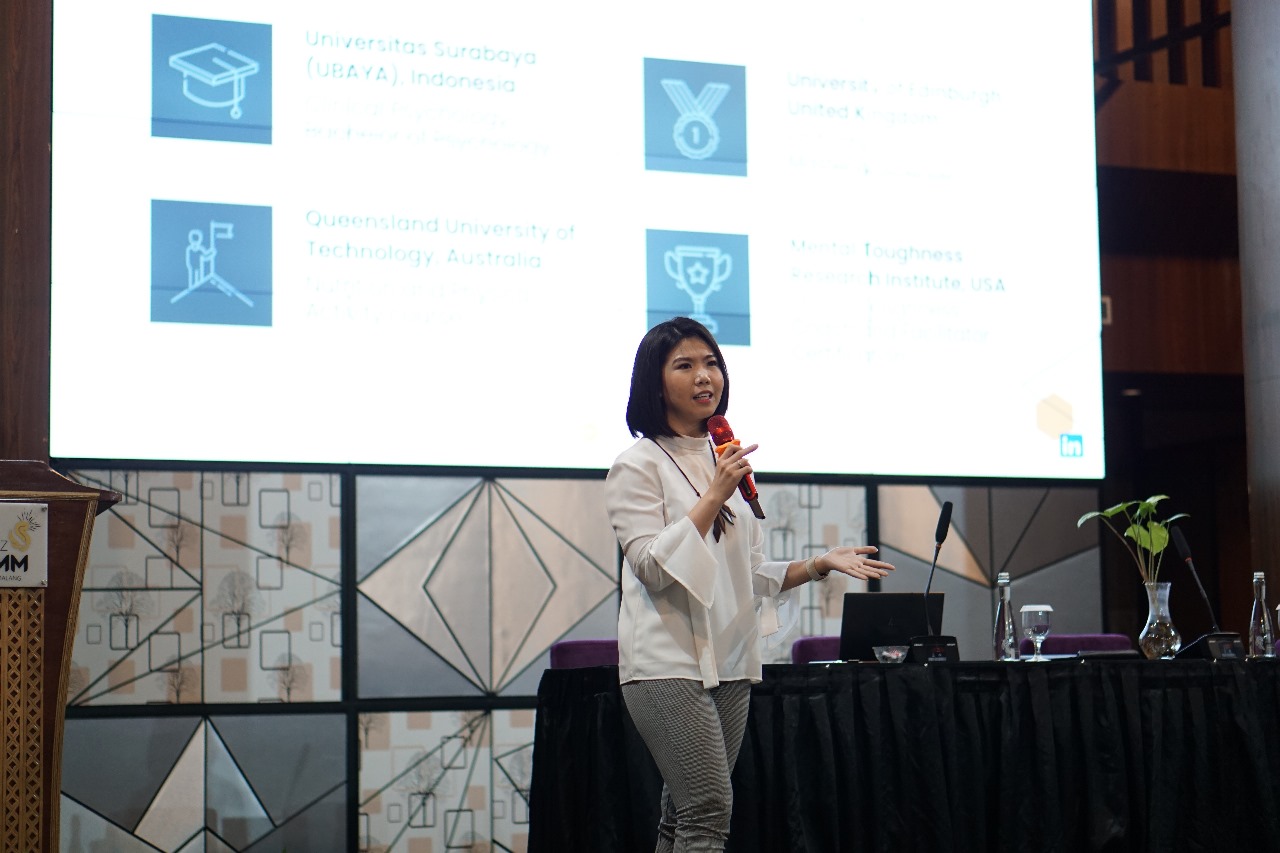 |
| Alberta Listiyani Siegit, M.Sc. as a Performance Psychologist coach (Photo: Dita Humas) |
According to research data from a communication agency in Southeast Asia collaborating with Decision Lab, the number of Indonesians involved in electronic sports (e-sports) in 2021 reached 52 million people. This has caught the attention of the Faculty of Psychology at the University of Muhammadiyah Malang (UMM), prompting them to organize workshops and establish an e-sports psychology lab. The agenda was carried out on February 5th.
Also present was Alberta Listiyani Siegit, M.Sc., as a coach and Performance Psychologist. She stated that the development of e-sports needs further attention. Listi also explained the ins and outs of the e-sports world, such as the existing regulations. There are three rules consisting of three parts: players, managers, and coaches. Under the coaches' section, there are three further subdivisions: technical, physical, and performance.
Read more: UMM IP Lecturer: VOG Members are Heroes of Democracy
"Many e-sport teams in Indonesia are still unaware of the importance of coaches with a psychological background. However, to improve the team's performance, there must be a coach who guides them mentally and physically. Therefore, the opportunity for a psychologist to enter the realm of e-sports at this time is significant," she explained.
Additionally, she outlined the differences between mobile E-Sport players and PC E-Sport players. A career for mobile e-sports players can be considered very short-lived, as they can only exist from the ages of 16 to 23. Moreover, mobile e-sports players are highly flexible. Players can play using any smartphone brand, as long as it supports the application. "Unfortunately, becoming a player in mobile e-sports is not easy. The main requirement is to drop out of school, which many parents do not agree with," Listi said.
She noted that most players come from lower to middle-class backgrounds, especially those struggling with school fees and lacking parental support to continue schooling. This presents a significant opportunity for them to pursue a career in the mobile e-sports world.
"In contrast to mobile e-sport, PC e-sport players have a longer career span, from 17 to 29 years old. Most PC players also pursue higher education or are already employed. The interest in PC players mostly comes from the middle class, as the required equipment is not cheap. Starting from high-end PCs to other supporting tools," she added.
Read more : Superb! UMM Students Create a Fire Detector Device
M. Salis Yuniardi, S.Psi, M.Psi, PhD, the Dean of Psychology at UMM, also delivered an interesting presentation. He explained the background of why psychology is entering the world of e-sports. According to him, pro players greatly need a psychologist due to the high pressure they experience from various factors. On the other hand, many assumptions about e-sports are still unclear, thus making it necessary for psychology to study and research it.
"It is only natural for psychology educators to utilize aspects of teaching, research, and studies to begin entering the world of e-sports. Among the millions of e-sports enthusiasts, it would be regrettable if psychology did not divert its focus there. Psychology is not only about companies and mental disorders, but should be able to broaden its horizons. One of them is through e-sports," he concluded. (dit/wil/fajr)